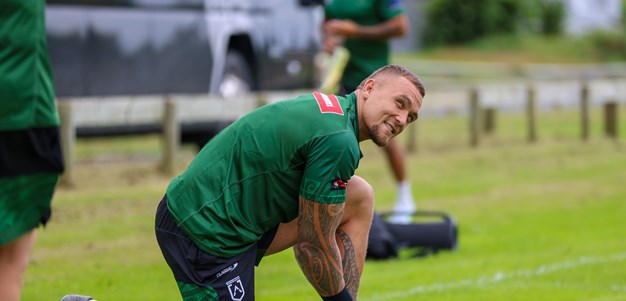
Today marks 50 years to the day since the first Indigenous rugby league team toured New Zealand in 1973, embarking on a journey of resilience, leadership and mateship.
The team consisted of Aboriginal and Torres Strait Islander men from New South Wales, Queensland and the Northern Territory.
Just six years after the 1967 Australian Referendum, against all odds, these pioneers were selected to represent their communities, family and country to play rugby league at an international level.
At that time racism and segregation were prominent in Australia and their status as trailblazers went without recognition.
Some of these men had not left their communities or state, let alone the country before. These men had to get permission from the Aboriginal Affairs Department to leave the country.

In organising the tour, the team received a grant from the National Aboriginal Sports Foundation. However, they were not endorsed by the Australian Rugby League and were not able to wear the green and gold of the country they were representing. Instead, the team wore maroon and blue jerseys and black shorts to represent New South Wales, Queensland and the Northern Territory.
Once they arrived in New Zealand, they travelled the breadth of the country from Christchurch to Rotorua playing nine games in 11 days, losing on only two occasions.

This years All Stars in Rotorua created an ideal opportunity to correct the past with the National Rugby League celebrating the achievements of this team and acknowledging what they had to overcome to complete this amazing journey.
Surviving players of the 1973 team were formally invited to join the NRL as honoured guests at the Harvey Norman All Stars event in Rotorua, with 12 members of the team able to join the weeks celebrations.

Team members attended events such as the official Pōwhiri (welcome event), Harvey Norman store appearance, official teams dinner, community and teams jersey presentations, captains run and game day activations.
“It was well and truly time for the NRL to formally acknowledge this team, those men who paved the way for our people in the game of Rugby League," said Katrina Fanning, Australian Rugby League Indigenous Council Chair.
"They fought the fight and never gave up. It was fantastic timing that this could happen alongside our Indigenous men and women at this years All Stars in New Zealand, 50 years after these men paved the way for us.”
The National Rugby League is honoured to be able to share these stories with our communities and fans, and acknowledging the long and rich history of Indigenous people in rugby league.
Their stories and legacy will live on and forever now be acknowledged in the history of the greatest game of all.






